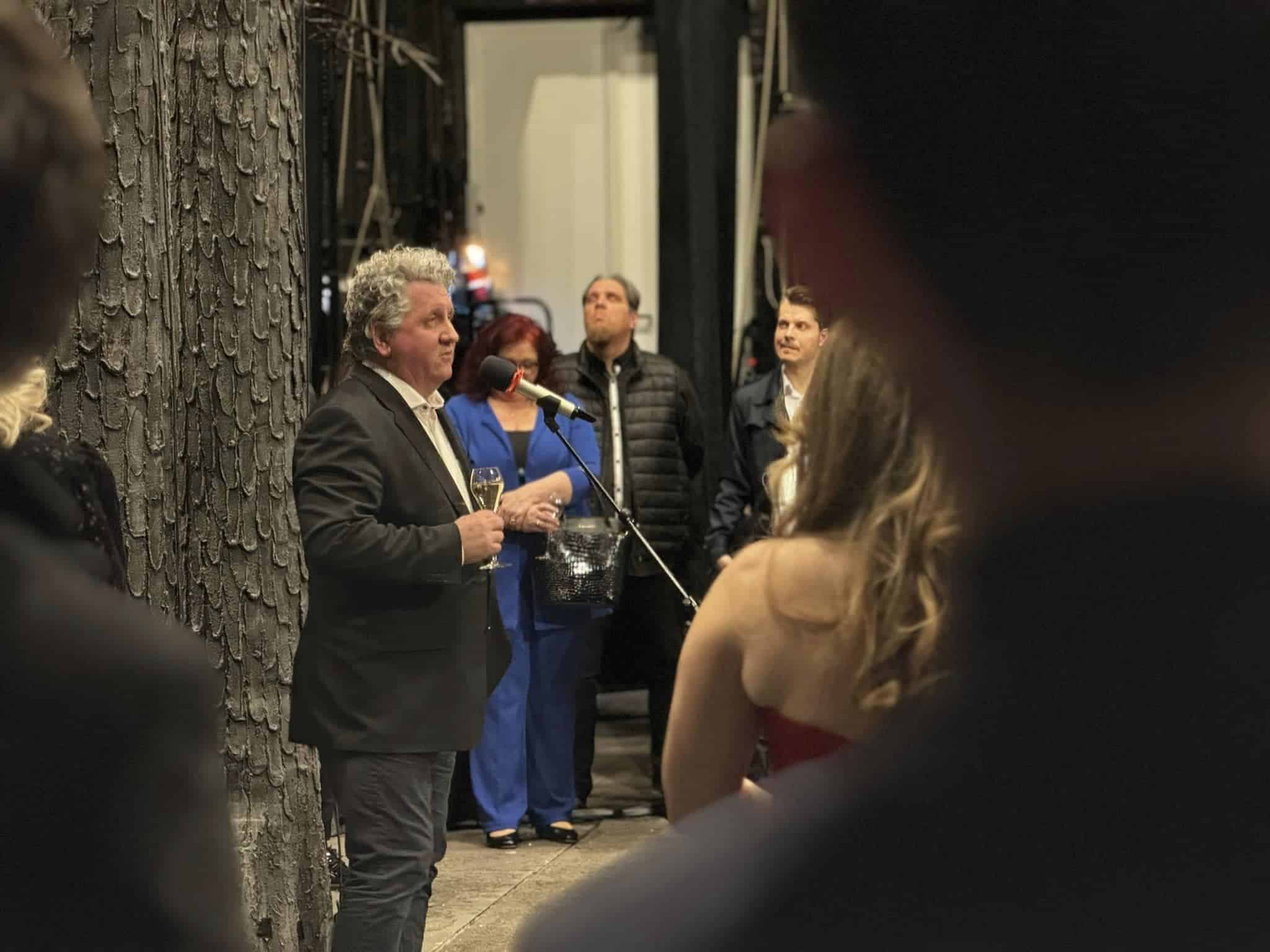Budapest extends interval to boost bar profits
OrchestrasNews from the lower reaches of the Danube:
Szilveszter Ókovács, director of the Hungarian State Opera, caused a stir by extending the intermission to 30 minutes during a staged production of Carmina Burana.
Ókovács said he wanted to make more money on selling food and beverages to the audience during a longer intermission. But not everyone is happy. Conductor Tibor Bogányi withdrew from the production yesterday. He explained that Ókovács’ arbitrary decision was not preceded by a discussion with the production team, and that it breaks the integrity of the stage director’s concept of the production, which Bogányi has been conducting for 5 years, and which has been seen so far by 70,000 people.






He didn’t extend the break, he implemented it to a production that had no interval prior to the decision.
I was wondering: Carmina Burana is just over an hour – why should there be an interval? Especially half an hour is a lot.
Conductor is too full of himself and should get off his high horse. Companies need to make money, extending an immersion by 10 minutes won’t change anything
Intervals of twenty minutes regularly become half an hour if your opera house or concert hall holds more than 400-500 people. How else can you get so many people fed, watered and out of the loo in 1800 seconds? This chap seems realistic and honest about what he wants/needs for his establishment.
I attend CBSO concerts at Symphony Hall and Royal Shakespeare Company performances in Stratford, and in both places I would appreciate a half hour interval rather than being hurried back inside so soon.
What several people are missing, and what Emil has pointed out, is that Carmina Burana is a short work intended to be performed continuously from start to finish.
Of course, that meant that the interval was zero, as were bar sales. So it is a clear victory of commerce over art.
Exactly this. For sure the musicians would have hated that break.
Or possibly financial necessity.
I would appreciate an hour interval for dinner, dessert and pit stop.
I would like to read a further clarification. Is Carmina Burana the only piece on this program? I suspect there must be additional music. Inserting an interval during the 60 minute Carmina Burana is like hearing a Beethoven symphony, with commercials between movements. However, if there was already an interval between CB, and other music (Catulli Carmina? Trionfo di Aphrodite? Les Noces?), adding a few minutes to same might make some sense.
It is a staged version, and it is the single item in the program.
https://teszt.opera.hu/en/programme/2023-2024/carmina-burana-2023/63277-eloadas-202404261900/
You seem to be correct, GuestX, but it has staged ballet elements incorporated and visual elements added.
Usually it is not. It is only one hour or so long.
The Milwaukee Symphony for example will play it with 2 other pieces. See https://www.mso.org/concerts/carmina-burana/57676/
The same for the Chicago Symphony which also plays 2 other works with it March 16-18. Osmo Vanska conducts. https://www.youtube.com/watch?v=MM4J3ruOP-0
Nor does this appear to be a cultural thing.
The Berlin Philharmonic under Simon Rattle played it with Beethoven’s Leonore No. 3 overture and Handel’s ‘Hallelujah’ Chorus also included in 2004. See
https://www.youtube.com/watch?v=bnr7teAg5DU
It is a show stopper and often played, with other pieces, to end a season.
At the Liszt Academy men are obliged to leave their jackets in the cloakroom before a concert even if they contain all their important papers and money.
Shouldn’t Carmina Burana be performed continuously with no intermission at all? It’s like putting an intermission between the first 2 movements of Mendelssohn’s Violin Concerto. Why not just programme a short orchestral piece (eg an overture) before Carmina Burana and then have a 30 minute intermission before Carmina Burana begins? That’s a more sensible practice and gives latecomers a chance to hear the whole Carmina Burana.